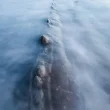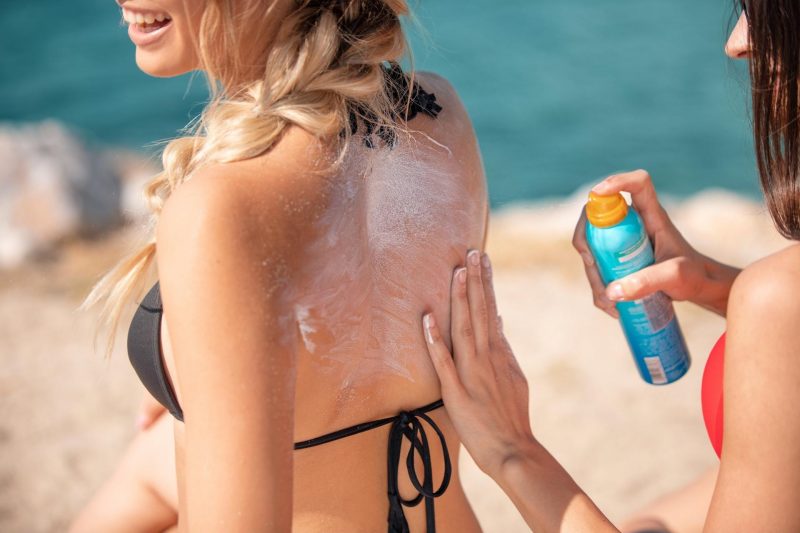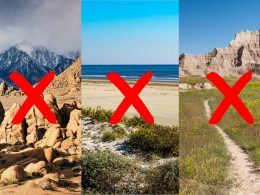Every year tourists book exotic and luxury vacations to some of the most incredible beach destinations in the world. However, tourists often unknowingly leave a massive amount of damage behind at the end of their trip. Some of the most beautiful and important ocean ecosystems, coral reefs, often take the brunt of the damage.
So, are tourists killing the coral reefs? Is there anything we can do to make a difference? Let’s dive in and see!

What Are Coral Reefs?
Coral reefs are underwater ecosystems like a massive city of coral polyps held together by calcium carbonate. These city-like coral communities are colonies and are incredibly sensitive and delicate.
Coral reefs are home to many plants and animals that live in the ocean. These plants and animals depend on coral reefs for survival. However, their homes are often under attack from uninformed tourists.
Why Are Coral Reefs Important?
Coral reefs are important because they provide a place for aquatic life to thrive. Without coral reefs, many of these plants and animals would be unable to survive.
The National Oceanic and Atmospheric Administration estimate that over half a billion people depend on coral reefs for food, income, and protection. They also estimate that coral reefs are responsible for billions of dollars of net economic value.
Another important job of coral reefs is to protect coastlines. Waves can cause a tremendous amount of erosion and destruction to the land. Coral reefs can help break up the waves to protect the land from erosion, especially during tropical storms.
What Is the Biggest Threat to Coral Reefs?
The greatest threats to coral reefs around the world involve humans. Rising seawater temperatures and ignorant tourists are destroying the susceptible coral reefs.
This is why individuals must educate themselves in caring for the environment. Small decisions like the type of sunscreen they use when swimming in the ocean or watching where they step can help to avoid damage to these sensitive pieces of aquatic life.
HOT TAKE
Yes, you can build a 100% fossil fuel-free solar sailboat!
Are Tourists Killing the Coral Reefs?
Many areas with a heavy tourist population experience excessive amounts of damage to coral reefs living in their waters. Tourists often ignore local rules and regulations regarding responsibly recreating in ocean waters.

Hawaii Governor David Ige signed a 2018 bill banning sunscreen that uses chemicals known for causing harm to coral reefs. Many tourists bring sunscreen on their Hawaiian vacations and lather themselves up before going for a dip in the water. However, many sunscreens contain oxybenzone and octinoxate, which are incredibly harmful to coral reefs.
Sadly, while tourists bring loads of revenue to local communities, they’re destroying the natural beauty. Many local governments must weigh the potential impact of creating legislation that protects aquatic life by restricting human behaviors that bring many tourists to the area. Some restrictions could result in a major blow to the local economy that greatly depends on tourism.
How Are Humans Killing the Coral Reefs?
As we mentioned earlier, one way humans are killing coral reefs is by their choice of sunscreen. The sunscreen may protect them from the sun, but they release harmful chemicals into the water the second they go for a dip in the ocean. Hawaii is one state that has requirements for using sunscreen to help protect coral reefs and other aquatic life.
Another way that humans are killing the coral reefs is by intentionally or unintentionally touching them. The aquatic life is so sensitive that touching or standing on it can cause considerable damage.

Those who love snorkeling and diving will take the opportunity to stand on the coral to relax their tired arms. However, the simple act can damage growth that’s taken years for the coral reef to achieve.
Is Tourism Destroying the Great Barrier Reef?
While many blame tourism for destroying the Great Barrier Reef, it’s not the case. That’s because roughly 80% of the tourism activity inside the Great Barrier Reef Marine Park occurs in only 7% of the entire ecosystem.
Andy Ridley of Citizens of the Great Barrier Reef believes that getting more people to visit the Great Barrier Reef is the key to helping it grow. That’s because when visitors come to experience the park, they pay an admission fee. This admission fee helps fund the care and protection of the park. The more tourists, the more revenue available to protect the environment.
Many researchers cite climate change as the largest threat to the Great Barrier Reef. Many state and national governments invest money into research and protection efforts. They hope to protect these vital ecosystems, so they’re available for future generations to enjoy.
Can Coral Reefs Recover?
Yes, coral reefs can recover. However, it’s by no means a quick process. Some recovery efforts take 25+ years. One of the best ways to help coral reefs recover is by protecting them from further damage. If you can reduce the chances of further damage, you can start helping the colonies recover.

A process known as micro-fragmentation allows oceanographers and environmentalists to use small pieces of coral to create new growth. While this is often done on a much smaller level in home aquariums, Plant a Million Corals Foundation is looking to do it at an industrial scale. This will allow them to take the process from decades to a couple of years.
How Can We Protect Coral Reefs From Tourism?
You can still take trips and adventures to some epic beachside locations with amazing ocean life. However, there are a few things we think every tourist should do to help protect the coral reefs.
Buy Special Sunscreen
If you’re planning to go for a swim, avoid buying sunscreens that contain oxybenzone and octinoxate. These are two notoriously awful chemicals in sunscreens with a reputation for killing coral reefs.
You’ll want to purchase sunscreens with zinc, zinc oxide, or titanium oxide. Will they be cheaper? Likely not. However, consider it a small price to protect aquatic life.
Because Hawaii has regulations when it comes to the use of certain sunscreens, many of the beaches have sunscreen stations available. These sunscreens are free from harmful chemicals and safe to use in the ocean. You won’t have to worry about harming aquatic life or risk using one of the banned sunscreens.
Use Reusable Bottles and Bags
Plastics and other marine debris are extremely harmful to coral reefs. Using reusable bottles and bags can help minimize your plastics consumption, as plastic often finds its way into nearby waterways. However, simply using reusable bottles and bags is not enough.

When you go to leave a beach, make sure you take all of your belongings with you. Leaving these items behind can cause them to blow into the water, which is just as harmful to the environment as plastics and other debris. Refrain from leaving any objects too close to the water and grab any trash that you see littering the beach.
Snorkel and Dive With Local Guides
Local guides have a vested interest in caring for the local aquatic environment. They’ll often take you to some of the best diving places and provide safety tips for you and aquatic life.
If they notice any potential issues or behaviors that could cause damage to the coral reef, they’ll spring into action. Any damages to the coral reef could negatively impact the future of their business.
Educate Yourself
The best way to protect coral reefs is through education. When you don’t realize the negative impact that your actions are having on an area, you can’t know any better.
However, once you educate yourself and see human behavior’s negative impacts on coral reefs, you’ll understand the importance of changing. You’ll likely feel inspired to bring about change and raise awareness.

You can start by watching documentaries and reading literature about protecting the environment. Like many of you, we enjoy spending time outside and find that the more time we learn about the environment, the more we feel compelled to protect it. Educating yourself and others helps ensure future generations enjoy the coral reefs and natural wonders.
Are Coral Reefs Worth Protecting?
Coral reefs are home to the most diverse and elegant aquatic species. If we don’t protect coral reefs, we’re putting many species at risk. We must make the necessary adjustments in our behaviors to help protect coral reefs and the animals living among them.
It’s possible to snorkel and dive among coral reefs responsibly. So make sure you take the proper steps to leave the coral reefs how you found them when you’ve finished snorkeling or diving.
If You Want the Latest Travel News, Join Our Mailing List
Don’t rely on biased RV industry news sources to keep you informed. Stick with Nomadic News. We publish articles and breaking stories that matter to you every weekday.










